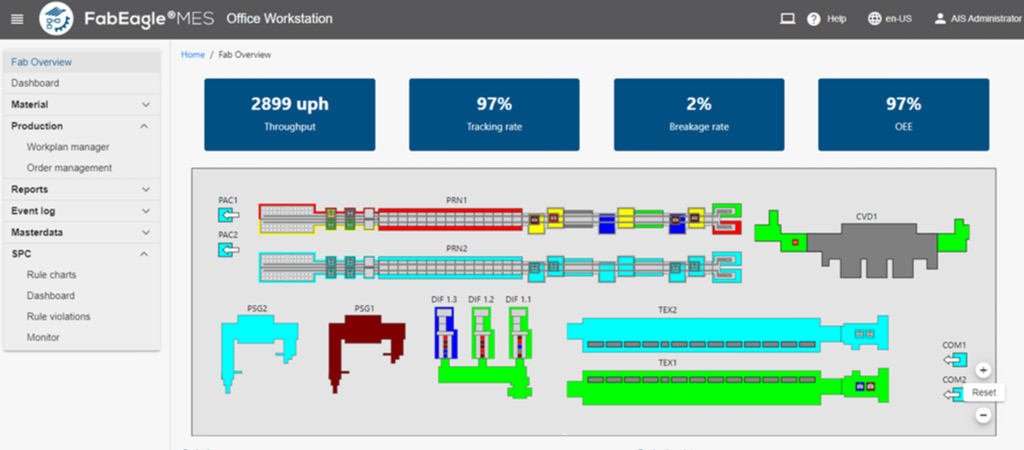The new release of the manufacturing execution system FabEagle®MES now supports all the processes in solar cell production even more efficiently; from commissioning to packaging, as well as special processes such as etching, coating, printing and classification. It also directly supports processes to inspect and rework matrix layups and to configure and control the palletizing of finished solar modules. Where fully automatic transport systems are used in the manufacturing process for module production, they can also easily be monitored and controlled. The improved visualization and evaluation of the complete genealogy from consumables to the finished module also enables the complete recording of all necessary quality and process data for the sustainable improvement of processes. In addition to the established SECS/GEM and PV02 interfaces, the new release also allows systems to be integrated using the standardized OPC UA interface to facilitate comprehensive data collection and reliable material tracking.
The new functions further expand the already comprehensive control features provided by FabEagle®MES for PV production in terms of even better connectivity. Networking is more important today than ever before, as Gunter Erfurt, CEO of Meyer Burger, confirms: “To maintain a leading market position with competitive advantages in the area of Industry 4.0, fully automated factories with completely networked and integrated production IT are needed.” And that is one reason why Meyer Burger relies on the MES from Kontron AIS. FabEagle®MES covers the whole of production at the Freiberg and Bitterfeld-Wolfen sites and collects information from hundreds of thousands of individual solar cells per day, piece by piece. In doing so it enables quality assurance, process control and AI-based evaluation in order to achieve higher outputs and continuous improvements. This lays the foundation for building future-oriented businesses, such as Meyer Burger's leading Heterojunction and SmartWire technologies, in order to increase the efficiency and lifetime of the modules. PV-specific MES software therefore makes an important contribution to the sustainability and cost effectiveness of the energy revolution.
